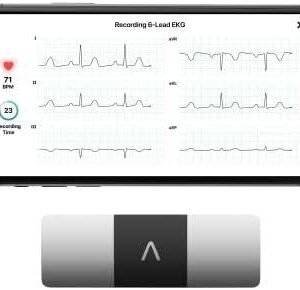Introduction
The journey through pregnancy is one of the most profound transformations a woman can experience, marked by the anticipation of new life and the myriad physical and emotional changes that accompany it. However, the postnatal period presents its own set of challenges as mothers navigate recovery and adapt to new roles. Known as a critical phase for both physical and psychological well-being, postnatal fitness training plays an instrumental role in helping new mothers regain strength, improve flexibility, and enhance overall health. This comprehensive guide aims to demystify postnatal fitness training by providing evidence-based insights and practical strategies to support women during this transformative time.
In this article, we will delve into the intricacies of postnatal fitness, addressing the unique physiological changes that occur during and after pregnancy, the importance of tailored exercise programs, and the psychological benefits of engaging in regular physical activity. We will explore a variety of effective training methods, including strength training, cardiovascular conditioning, and pelvic floor rehabilitation, thus equipping mothers with the tools necessary to develop a safe and effective fitness routine. Additionally, expert recommendations and real-life testimonials will underscore the importance of a holistic approach that prioritizes individual needs and encourages sustainable lifestyle changes.
Whether you are a new mother seeking to regain your pre-pregnancy fitness level or simply looking to incorporate more movement into your daily routine, this detailed guide will serve as your comprehensive resource for understanding and implementing postnatal fitness training. Join us on this journey to empower and inspire new mothers to reclaim their bodies and cultivate a nurturing environment for both themselves and their families.
Table of Contents
- Understanding the Postnatal Body: Physiological Changes and Recovery Needs
- Essential Components of Postnatal Fitness: Cardio, Strength, Flexibility, and Core Stability
- Creating a Tailored Postnatal Workout Plan: Strategies for Safe and Effective Training
- Nutrition and Wellness in Postnatal Fitness: Fueling the Body for Optimal Recovery and Performance
- In Summary
Understanding the Postnatal Body: Physiological Changes and Recovery Needs
During the postnatal period, the body undergoes significant physiological changes as it transitions from pregnancy to a new state of normalcy. Understanding these changes is crucial for new mothers as they re-establish their physical health. Hormonal shifts, uterine contractions, and breastfeeding all significantly impact recovery. Key aspects include:
- Hormonal Adjustments: The body rapidly reduces levels of pregnancy hormones such as estrogen and progesterone, which can affect mood and energy.
- Musculoskeletal Realignment: Core and pelvic floor muscles may have weakened, requiring targeted rehabilitation to restore strength.
- Fluid Retention and Swelling: Many women experience lingering edema, particularly in the days following delivery.
Recovery needs are multifaceted and should be tailored to individual circumstances. It is essential for new mothers to focus on both physical and emotional health, ensuring they have proper support systems in place. Consider the following recovery priorities:
| Recovery Focus | Actions |
|---|---|
| Pelvic Floor Health | Engage in pelvic floor exercises to strengthen muscles. |
| Core Stability | Incorporate gentle core exercises that promote alignment. |
| Cardiovascular Fitness | Start with low-impact activities like walking or swimming. |
| Nutrition | Consume a balanced diet to support recovery and breastfeeding. |
| Mental Well-being | Practice mindfulness, seek therapy, or join support groups. |
Essential Components of Postnatal Fitness: Cardio, Strength, Flexibility, and Core Stability
Postnatal fitness is a multifaceted approach that prioritizes the recovery and well-being of new mothers. Cardiovascular exercise plays a vital role in this journey, helping to boost energy levels, enhance mood, and improve overall cardiovascular health. Activities such as walking, swimming, or cycling are excellent choices, allowing mothers to gradually reintroduce movement into their routines. Aim for 20-30 minutes of moderate cardio at least 3 times a week, which can be easily adjusted based on individual fitness levels and comfort. Incorporating interval training can also provide significant benefits, promoting endurance without excessive strain.
In addition to cardio, developing strength is essential for regaining muscle tone and supporting the body’s postnatal changes. Focus on bodyweight exercises and resistance training to build strength in the arms, legs, and especially the core. Key movements might include squats, lunges, and push-ups, which can be modified based on recovery needs. Moreover, nurturing flexibility through gentle stretching routines helps alleviate tension and enhances overall mobility. Integrating core stability exercises, such as planks and pelvic tilts, is particularly important for restoring the abdominal muscles and improving posture. A well-rounded program can combine these elements into a cohesive routine that addresses all aspects of postnatal recovery and fitness.
| Fitness Component | Benefits |
|---|---|
| Cardio | Boosts energy, enhances mood, improves heart health |
| Strength | Restores muscle tone, boosts metabolism, improves physical function |
| Flexibility | Reduces muscle tension, enhances mobility, prevents injuries |
| Core Stability | Restores abdominal strength, improves posture, supports lower back |
Creating a Tailored Postnatal Workout Plan: Strategies for Safe and Effective Training
Designing a personalized postnatal workout plan is essential for promoting physical recovery while considering the unique challenges new mothers face. Begin by assessing your current fitness level and understanding any limitations, such as diastasis recti or pelvic floor issues. Engage in a comprehensive evaluation to determine your goals, which may include rebuilding strength, increasing endurance, or enhancing flexibility. A successful plan typically incorporates the following components:
- Gradual Progression: Start with low-impact exercises and progressively increase intensity.
- Core Rehabilitation: Focus on strengthening the deep core muscles through specific exercises.
- Flexibility and Mobility: Incorporate stretching and gentle yoga to alleviate tightness.
- Cardiovascular Health: Include moderate aerobic activities, such as walking or swimming.
- Strength Training: Utilize bodyweight exercises and bands to rebuild muscle safely.
When creating the workout timeline, aim for a mix of active recovery and structured workouts throughout the week. Ensure to allocate rest days for recovery and to accommodate any emotional or physical fatigue. Below is a sample weekly workout schedule that balances various aspects of fitness while allowing for adaptation:
| Day | Workout Focus | Duration |
|---|---|---|
| Monday | Core Activation | 20-30 min |
| Tuesday | Walking or Light Jogging | 30 min |
| Wednesday | Strength Training (Bodyweight) | 30 min |
| Thursday | Active Recovery (Yoga) | 30 min |
| Friday | Cardio (Swimming or Cycling) | 30-45 min |
| Saturday | Full-body Strength | 30 min |
| Sunday | Rest Day | – |
Nutrition and Wellness in Postnatal Fitness: Fueling the Body for Optimal Recovery and Performance
During the postnatal period, proper nutrition plays a crucial role in ensuring recovery, energy levels, and overall wellness. As new mothers navigate the transition into parenthood, it’s essential to focus on a balanced diet that supports both physical and mental health. Key components of a nutritious diet include:
- High-quality Proteins: Essential for muscle recovery and hormone balance.
- Complex Carbohydrates: Important for sustained energy levels to manage daily activities.
- Healthy Fats: Necessary for hormonal regulation and brain health, particularly omega-3 fatty acids.
- Fresh Fruits and Vegetables: Vital for providing essential vitamins, minerals, and antioxidants that promote healing.
Postnatal fitness isn’t solely about physical activity; it’s also about fueling the body appropriately. Hydration, too, should never be overlooked, as it supports optimal bodily functions and can improve mood and cognitive performance. A well-rounded postnatal eating plan could benefit from meal planning and preparation strategies to streamline the cooking process for busy moms. The following table outlines some quick and nutritious meal ideas that align with postnatal dietary needs:
| Meal | Main Ingredients | Benefits |
|---|---|---|
| Quinoa Salad | Quinoa, chickpeas, vegetables | High in protein and fiber |
| Oven-Baked Salmon | Salmon, sweet potatoes, greens | Rich in omega-3 fatty acids |
| Greek Yogurt Parfait | Greek yogurt, berries, nuts | Improves gut health and boosts energy |
| Vegetable Omelette | Eggs, spinach, bell peppers | Supports muscle repair and brain function |
In Summary
Conclusion
“” serves as a vital resource for new mothers navigating the often challenging journey of postnatal recovery and fitness. It is essential to approach this phase with a balanced mindset, understanding that each woman’s body responds differently to childbirth and postpartum changes. This guide emphasizes the importance of tailored exercise programs that are not only safe and effective but also considerate of individual circumstances and needs.
As we have explored, a well-structured postnatal fitness regimen encompasses a variety of elements—strength training, cardiovascular workouts, flexibility, and core stabilization—all designed to facilitate recovery, improve physical health, and restore confidence. Integrating these components can significantly enhance a mother’s overall well-being and foster a positive relationship with her body during this transformative time.
Furthermore, the psychological aspects of postnatal fitness cannot be ignored. Engaging in regular physical activity can alleviate symptoms of postpartum depression and anxiety, fostering a sense of community and connection among mothers. As such, prioritizing fitness in the postpartum period is not just about regaining physical strength; it is also an empowering step towards mental wellness.
we encourage new mothers to listen to their bodies, seek professional guidance when necessary, and embrace the journey of healing and fitness as a personal endeavor. Remember, postpartum recovery is not a race but a gradual process that celebrates progress, no matter how modest. By equipping themselves with the knowledge and resources outlined in this guide, mothers can confidently embark on a fulfilling path to postnatal fitness, ultimately enhancing their quality of life and nurturing a positive family dynamic.




